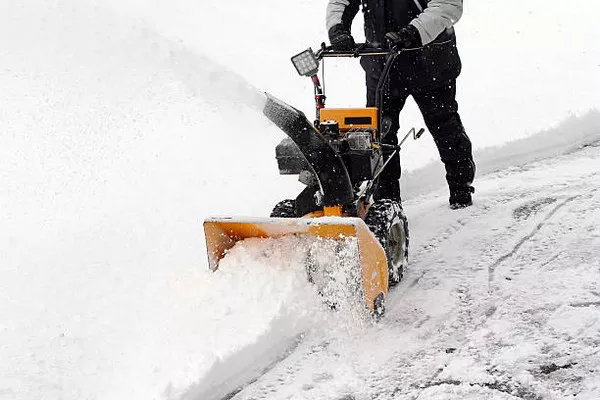Snowblowers are essential tools for efficiently clearing snow from driveways, sidewalks, and other outdoor spaces during the winter months. To ensure optimal performance and longevity of your snowblower, it is crucial to use the right type of fuel. The choice of gas can significantly impact the machine’s efficiency, emissions, and overall maintenance requirements. In this article, we will explore the different types of gas suitable for snowblowers and provide insights into making the best choice for your specific machine.
Understanding Fuel Options
Regular Unleaded Gasoline:
Regular unleaded gasoline is the most commonly used fuel for small engines, including those in snowblowers. It typically has an octane rating of 87 and contains a blend of hydrocarbons suitable for combustion in a variety of engines. When selecting regular unleaded gasoline for your snowblower, it is crucial to choose a fresh, clean fuel without additives, as some additives can leave deposits and impact engine performance.
Ethanol-Blended Gasoline:
Ethanol-blended gasoline, such as E10 (containing 10% ethanol), is widely available and often less expensive than pure gasoline. While E10 is generally safe for most modern snowblowers, it is essential to consider potential drawbacks. Ethanol can absorb water, leading to phase separation and the formation of deposits in the fuel system. If you choose to use ethanol-blended gasoline, it is advisable to add a fuel stabilizer to prevent ethanol-related issues during periods of extended storage.
Non-Ethanol Gasoline:
Non-ethanol gasoline, often labeled as “pure gas” or “ethanol-free,” is a preferred choice for many small engines, including those in snowblowers. This type of gasoline eliminates the risks associated with ethanol, such as water absorption and phase separation. Non-ethanol gasoline is particularly beneficial for machines used infrequently or stored for extended periods, as it reduces the likelihood of fuel system issues.
Considerations for Choosing the Right Gas
Manufacturer Recommendations:
The first and most crucial step in determining the appropriate gas for your snowblower is to consult the manufacturer’s recommendations. The owner’s manual will provide specific information regarding the acceptable fuel types, octane ratings, and any additives or stabilizers that the manufacturer recommends. Adhering to these guidelines ensures optimal performance and avoids potential warranty issues.
Octane Rating:
Snowblower engines are designed to operate efficiently with a certain octane rating, which represents the fuel’s resistance to premature ignition. Using a gasoline with an octane rating higher than what is recommended is unnecessary and may not provide any additional benefits. Conversely, using fuel with an octane rating lower than recommended can lead to engine knocking and reduced performance.
Avoiding Fuel Contamination:
To maintain the longevity of your snowblower, it is crucial to prevent fuel contamination. This involves using clean, uncontaminated fuel and storing it properly. Gasoline should be stored in a cool, dry place, away from direct sunlight and temperature extremes. Additionally, using a fuel stabilizer can help prevent fuel deterioration during storage.
Seasonal Considerations:
Winter weather conditions can vary, and it is essential to adjust your fuel choices accordingly. In extremely cold temperatures, some fuel formulations may be more prone to gelling, potentially causing starting issues. To mitigate this, consider using a fuel with a lower volatility index or adding a winter-grade fuel additive to prevent gelling.
Benefits of Choosing the Right Gas
Optimal Engine Performance: Using the recommended fuel type and octane rating ensures that your snowblower’s engine operates at peak performance. This not only improves the machine’s efficiency but also extends its overall lifespan.
Reduced Emissions: The right fuel contributes to cleaner combustion, resulting in reduced emissions. This is not only environmentally friendly but also complies with emission standards in various regions.
Lower Maintenance Costs: By using the correct fuel and following manufacturer recommendations, you can minimize the risk of engine issues and reduce maintenance costs over time. This includes avoiding costly repairs associated with fuel system problems or engine damage.
See Also: What Oil Should Be Used In A Snowblower?A Comprehensive Guide
Conclusion
In conclusion, selecting the right type of gas for your snowblower is a crucial aspect of maintaining its performance, efficiency, and longevity. Regular unleaded gasoline, ethanol-blended gasoline, and non-ethanol gasoline are the primary options available, each with its advantages and considerations. By adhering to manufacturer recommendations, considering octane ratings, and taking seasonal factors into account, you can make an informed decision that enhances your snowblower’s reliability and minimizes the risk of costly repairs. Remember that proper storage and fuel management practices play a significant role in ensuring your snowblower is always ready to tackle winter’s challenges.

